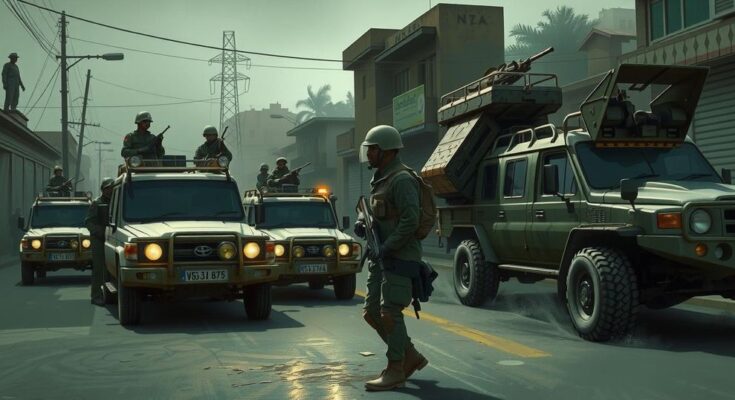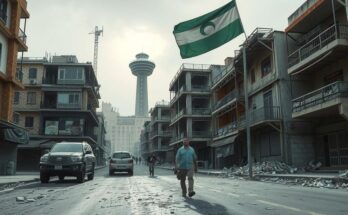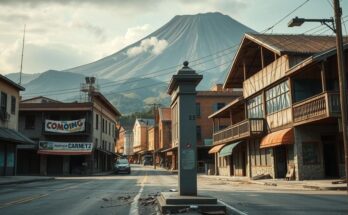Uganda has deployed special forces in Juba, South Sudan, to secure the capital amid rising tensions between President Salva Kiir and First Vice President Riek Machar. The detention of Machar’s allies has intensified fears of a return to civil war, endangering a crucial 2018 peace agreement. Uganda seeks to prevent further instability stemming from South Sudan.
Uganda has announced the deployment of its special forces in South Sudan’s capital, Juba, amid escalating tensions between President Salva Kiir and First Vice President Riek Machar, raising concerns regarding a possible return to civil war. The situation has intensified following the detention of ministers and military officials loyal to Machar, leading to fears of civil unrest.
Recent conflicts, including deadly clashes near Nasir, threaten the fragile peace established by the 2018 agreement which concluded a civil war that resulted in nearly 400,000 fatalities. Uganda’s military chief, Muhoozi Kainerugaba, confirmed that the special forces entered Juba to ensure security, emphatically stating Uganda’s allegiance to President Kiir.
Kainerugaba stated, “We the UPDF (Ugandan military), only recognize one President of South Sudan, H.E. Salva Kiir … any move against him is a declaration of war against Uganda.” The statement reflects Uganda’s long-standing support for Kiir amid the internal power struggles in South Sudan.
Historically, Uganda has intervened militarily in South Sudan, having previously deployed troops in both 2013 and 2016 to support Kiir’s administration. However, those troops were withdrawn after stabilizing efforts. The current deployment aims to prevent potential conflict that could displace refugees into Uganda and threaten regional stability, though details regarding the duration of the deployment remain unclear.
In summary, Uganda’s deployment of special forces to South Sudan aims to secure Juba amidst rising tensions between key political figures, raising alarms about a potential civil war resurgence. The Ugandan military’s unwavering support for President Kiir is evident, and past interventions highlight the country’s concerns regarding regional stability. The situation remains precarious, emphasizing the need for continued vigilance and diplomatic engagement.
Original Source: www.voanews.com




